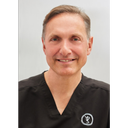Most experts unanimously agree that smoking increases the rate of breast augmentation surgical complications significantly. Just about all plastic surgeons strongly recommend women to stop smoking and all nicotine products well in advance of breast augmentation with breast implants. Many plastic surgeons recommend stopping all tobacco products several months prior to surgery.Here is the reason why: the nicotine in cigarettes and other tobacco products (including Nicorette gum, patches, etc) is a vasoconstrictor, meaning it makes the Smoking is a significant multiplier of many potential complications following surgery and breast augmentation with implants are no exception. Nicotine from smoking causes blood vessels to vasoconstrict ( tighten up). Over time, these constricted arteries and capillaries deliver less blood to the breast tissue which is needed for normal healing. Smokers therefore have an increased incidence of higher likelihood of complications such as infection, and in particular capsular contracture (hardening and distortion of the implants). General complications of surgery such as blood clots, anesthetic problems such as pneumonia are also increased. A scientific article in the Archives of Internal Medicine indicated that, among all forms of surgery, quitting smoking eight weeks prior was never associated with an increased risk of complications.In young patients you will probably statistically avoid these complications, why tempt fate by increasing your odds that something bad will happen.On a long term basis, smoking also causes accelerated aging of the skin and loss of elasticity. Hopefully these reasons will help give you the will power and courage to stop smoking.








